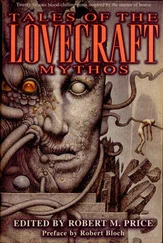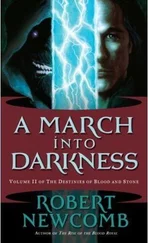Robert Pirsig - Lila. An Inquiry Into Morals
Здесь есть возможность читать онлайн «Robert Pirsig - Lila. An Inquiry Into Morals» весь текст электронной книги совершенно бесплатно (целиком полную версию без сокращений). В некоторых случаях можно слушать аудио, скачать через торрент в формате fb2 и присутствует краткое содержание. Жанр: Современная проза, на английском языке. Описание произведения, (предисловие) а так же отзывы посетителей доступны на портале библиотеки ЛибКат.
- Название:Lila. An Inquiry Into Morals
- Автор:
- Жанр:
- Год:неизвестен
- ISBN:нет данных
- Рейтинг книги:3 / 5. Голосов: 1
-
Избранное:Добавить в избранное
- Отзывы:
-
Ваша оценка:
- 60
- 1
- 2
- 3
- 4
- 5
Lila. An Inquiry Into Morals: краткое содержание, описание и аннотация
Предлагаем к чтению аннотацию, описание, краткое содержание или предисловие (зависит от того, что написал сам автор книги «Lila. An Inquiry Into Morals»). Если вы не нашли необходимую информацию о книге — напишите в комментариях, мы постараемся отыскать её.
Lila. An Inquiry Into Morals — читать онлайн бесплатно полную книгу (весь текст) целиком
Ниже представлен текст книги, разбитый по страницам. Система сохранения места последней прочитанной страницы, позволяет с удобством читать онлайн бесплатно книгу «Lila. An Inquiry Into Morals», без необходимости каждый раз заново искать на чём Вы остановились. Поставьте закладку, и сможете в любой момент перейти на страницу, на которой закончили чтение.
Интервал:
Закладка:
After that there was a scaling down of thoughts that occurs whenever you adjust to a new physical situation. What am I doing here? he wondered. I wonder how things are doing now back home?… How am I going to get those English papers corrected by Monday? … and so on. But the thoughts gradually became less and less demanding and he settled down more and more into where he was and what he was watching.
Sometime after midnight, after he had listened to the singing and beating on the drum for hours and hours, something began to change. The exotic aspects began to fade. Instead of being an onlooker, feeling greater and greater distance from all this, his perceptions began to go in the opposite direction. He began to feel a warmth toward the songs. He murmured to John Wooden Leg, the Indian sitting next to him, John, that’s a great song! and he meant it. John looked at him with surprise.
Some huge unexpected change was taking place in his attitude toward this music and toward the people who were singing it. Something in the way they spoke and handled things and related to each other struck a resonance too, way deep inside him, at levels that had seldom resonated favorably to anything.
He couldn’t figure out what it was. Was the peyote just making him sentimental? He didn’t think so. It ran deeper than sentimentality. Sentimentality is a narrowing of experience to the emotionally familiar. But this was something new opening up. There was a contradiction here. It was something new opening up that gave the sentimental feeling someone might get from his childhood home when he sees a tree he once climbed or a swing he used to play on. A feeling of coming home. Coming home to some place he had never been before.
Why should he feel at home? This was the last place on earth where he should feel that.
He really didn’t. Only a part of him felt at home. The other part still felt estranged and analytic and watchful. It seemed as though he was splitting into two people, one of whom wanted to stay there forever, and the other wanted to leave immediately. The latter one he understood, but who was this first person? This first person was a mystery.
This first person seemed like it must be some secret side of his personality, a dark side, that seldom spoke and didn’t show itself to other people. He guessed he knew about it. He just didn’t like to think about it. It was the side with the sullen, scowling, outlook; a side that didn’t like authority, had never amounted to anything, and never would, and knew that, and was sad about it, but couldn’t help it. It could never be happy anywhere but always wanted to move on.
This wild side was saying for the first time, stop wandering, and these are your real people, and that was what he began to see there, listening to the songs and drums and staring into the fire. Something about these people seemed to say to this bad side of himself, We know exactly how you feel. We feel this way ourselves.
The other side, the good analytic side, just watched, and before long it slowly began to spin an enormous symmetrical intellectual web, larger and more perfect than any it had ever spun before.
The nucleus of this intellectual web was the observation that when the Indians entered the teepee, or went out, or added logs, or passed the ceremonial peyote, or pipe, or food, they just did these things. They didn’t go about doing them. They just did them. There was no waste motion. When they moved a branch into the fire to build it up they just moved it. There was no sense of ceremony. They were engaged in a ceremony but the way they did it there wasn’t any ceremony.
Normally he wouldn’t have attached much importance to this, but now, with the peyote opening up his mind and with his attention having nowhere else to go, he bored in on it with intensity.
This directness and simplicity was in the way they spoke, too. They spoke the way they moved, without any ceremony. It seemed to always come from deep within them. They just said what they wanted to say. Then they stopped. It wasn’t just the way they pronounced the words. It was their attitude — plain-spoken, he thought…
Plains spoken. They were speaking in the language of the Plains. This was the pure Plains American dialect he was listening to. It wasn’t just Indian. It was white too. It was a kind of Midwestern and Western accent you hear in Woody Guthrie songs and cowboy movies. When Henry Fonda appears in The Grapes of Wrath or Gary Cooper or John Wayne or Gene Autry or Roy Rogers or William S. Boyd appear in any of a hundred different Westerns this is how they talk, not like some fancy college professor, but Plains spoken; laconic, understated, very little tonal change, no change of expression. Yet there was a warmth beneath the surface that you couldn’t point to the source of.
Films have made the whole world know the dialect so well it’s almost a cliché, but the way these Indians were speaking it wasn’t any cliché. They were speaking the American Western dialect just as authentically as any cowboy he had ever heard. More authentically. It wasn’t something they were putting on. It was them.
The web expanded when Phædrus began to consider the fact that English wasn’t even the native language of these people. They didn’t speak English in their homes. How was it that these linguistic foreigners spoke the Plains dialect of American English not only as well as their white neighbors but actually better? How could they possibly imitate it so perfectly when it was obvious from their lack of ceremony that they weren’t trying to imitate anything at all?
The web grew wider and wider. They were not imitating. If there’s one thing these people didn’t do it was imitate. Everything was coming straight from the heart. That seemed to be the whole idea — to get things down to a point where everything’s coming straight on, direct, no imitation. But if they weren’t imitating, why did they talk this way? Why were they imitating?
Then the huge peyote illumination came:
They’re the originators!
It expanded until he felt as though he had walked through the screen of a movie and for the first time watched the people who were projecting it from the other side.
Most of the rest of the whole tray of slips, many more than a thousand of them before him here, was a direct growth from this one original insight.
Tucked in among them was a copy of a speech made at the Medicine Lodge council of 1867 by Ten Bears, a Comanche chief. Phædrus had copied it from a book on Indian oratory to use as an example of Plains speech by someone who could not possibly have learned it from the whites. Now he read it again.
Ten Bears spoke to the assembled tribes and specifically to the representatives of Washington, saying:
There are things which you have said to me which I do not like. They were not sweet like sugar, but bitter like gourds. You said that you wanted to put us upon a reservation, to build us houses and to make us Medicine lodges. I do not want them.
I was born on the prairie, where the wind blew free, and there was nothing to break the light of the sun. I was born where there were no enclosures, and where everything drew a free breath. I want to die there, and not within walls. I know every stream and every wood between the Rio Grande and the Arkansas. I have hunted and lived over in that country. I lived like my fathers before me, and like them I lived happily.
When I was at Washington, the Great Father told me that all the Comanche land was ours, and that no one should hinder us in living upon it. So why do you ask us to leave the rivers, and the sun, and the wind, and live in houses? Do not ask us to give up the buffalo for the sheep. The young men have heard talk of this and it has made them sad and angry. Do not speak of it any more. I love to carry out the talk I get from the Great Father. When I get goods and presents, I and my people feel glad since it shows that he holds us in his eye. If the Texans had kept out of my country, there might have been peace.
Читать дальшеИнтервал:
Закладка:
Похожие книги на «Lila. An Inquiry Into Morals»
Представляем Вашему вниманию похожие книги на «Lila. An Inquiry Into Morals» списком для выбора. Мы отобрали схожую по названию и смыслу литературу в надежде предоставить читателям больше вариантов отыскать новые, интересные, ещё непрочитанные произведения.
Обсуждение, отзывы о книге «Lila. An Inquiry Into Morals» и просто собственные мнения читателей. Оставьте ваши комментарии, напишите, что Вы думаете о произведении, его смысле или главных героях. Укажите что конкретно понравилось, а что нет, и почему Вы так считаете.











